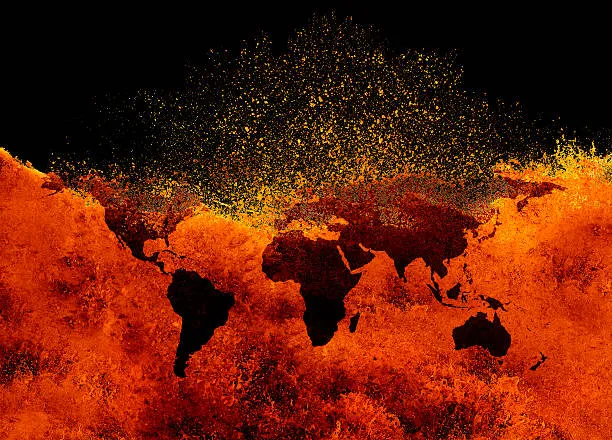Scientists have recently discovered that a warming world is transforming some major snowfalls over mountains into extreme rainfall, leading to a worsening of both dangerous flooding and long-term water shortages. According to a study published in the journal Nature, for every degree Fahrenheit the world warms, extreme rainfall at higher elevation increases by 8.3%, a staggering 15% increase for every degree Celsius.
The impact of this phenomenon is far-reaching, causing a multitude of problems including flooding, landslides, and erosion. Unlike snowpack, which can recharge reservoirs in spring and summer, heavy rain in mountains is not conveniently stored away, leading to a rapid influx of water that can cause devastating floods.
Lead author Mohammed Ombadi, a hydrologist and climate scientist at the Lawrence Berkeley National Laboratory, emphasizes that this is not a problem that will only affect the future, but is already being observed in the data over the past few decades. “It is not just a far-off problem that is projected to occur in the future, but the data is actually telling us that it’s already happening,” he said.

As the world has warmed to almost the 1.5C threshold to stem the worst effects of climate change, the study shows that every degree of warming comes with an additional 15% increase in extreme rain over mountains, a crucial finding that highlights the urgency of the situation.
The study analyzed the heaviest rains each year over six decades in the northern hemisphere, finding that as altitude increased, so did the turbocharging of rain. The biggest increase in rains was noticed at about 10,000ft, which includes much of the American west, the Appalachian Mountains, the Himalayas, Tian Shan and Hindu Kush mountains, and the Alps.
Approximately one in four people on Earth live in an area close enough to the mountains or downhill that extreme rain and flooding would affect them, making this a significant threat to global communities. The study acknowledges that the impact of extreme rainfall is felt particularly hard in regions prone to heavy snowfall, such as the American west, where it can cause devastating floods and water shortages.
The implications of this phenomenon are far-reaching, affecting not only immediate flood hazards but also long-term water supplies. The decrease in snowpack due to warmer temperatures means that reservoirs will have less water to draw upon, leading to more floods and less water available for agriculture, drinking water, and other essential uses.

